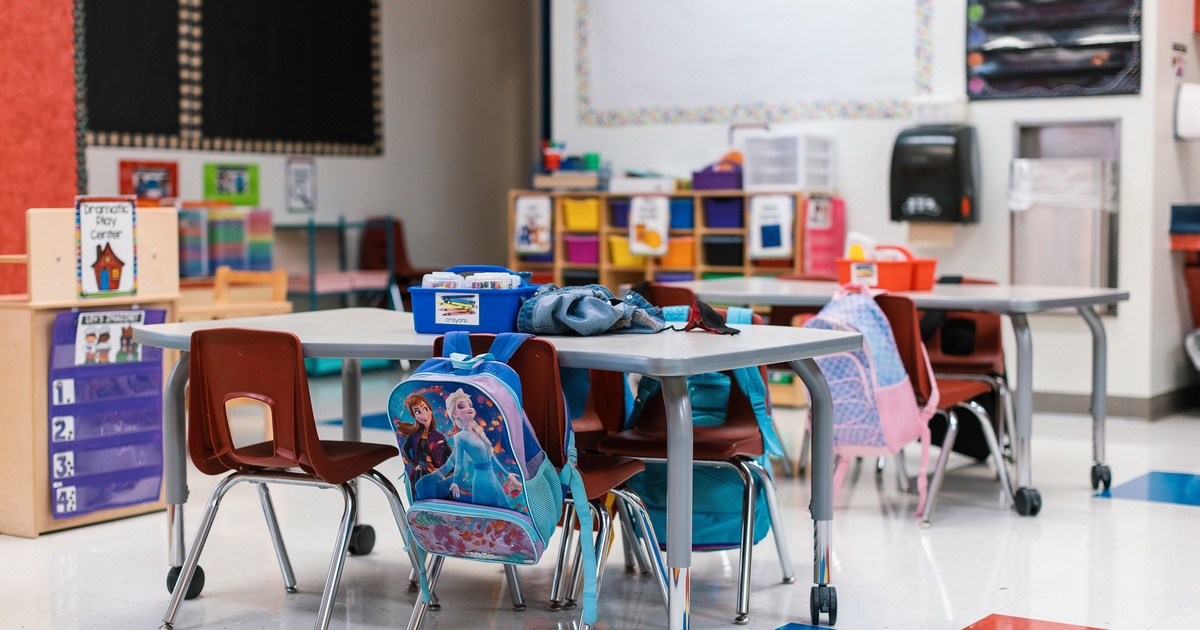Sign up for The Texas Tribune’s daily newsletter, “The Brief,” to keep readers up to date on the most important Texas news.
Questions about how voucher programs may or may not help children with disabilities took center stage at a hearing Tuesday before the Texas Senate Education Committee to discuss a major school voucher bill on the agenda during the Legislature’s most recent special session.
Senate Bill 1, authored by Sen. Brandon Clayton, R-Conroe, would use taxpayer money to create Education Savings Accounts, a voucher-like program that would allow families to access up to $8,000 a year to pay for private school tuition and other education expenses.
Voucher proponents say education savings accounts allow students with disabilities to attend specialized schools if public schools can’t meet their needs, but opponents point out that private schools, unlike public schools, are not required by law to provide special education services.
Some disability advocates have expressed concern about funneling public money to private schools at a time when the state’s public school system, which serves most of Texas’ special needs students, remains underfunded. The number of students with disabilities in Texas has increased by 200,000 in the past five years, said Steven Aleman, a policy specialist at Disability Rights Texas.
“Public school enrollment is growing. Special education enrollment is growing,” Aleman testified Tuesday. “We need to focus on supporting that system first and foremost. [education savings accounts]Frankly, that’s a luxury we can’t afford.”
SB 1 notes that private schools are not subject to regulations set out in the federal Education for Children with Disabilities Act, which requires public schools to provide critical services to students with disabilities, said Sabrina Gonzalez Saucedo, a public policy analyst with the Texas Council on Developmental Disabilities.
“This includes the right to a free appropriate public education, the right to an evaluation, the right to have a doctor review any diagnostic findings, an individualized education program and other very important rights guaranteed by law,” Gonzalez Saucedo said. “We are very concerned that parents and students would lose these rights if they received a voucher.”
Gonzalez Saucedo, whose sister has an intellectual disability, also worries that the voucher system could create “segregated education” between students with and without disabilities. Because students with disabilities often benefit from the opportunity to learn and play alongside their non-disabled peers, she said, the voucher system could incentivize parents to segregate their children.
Mandy Drogin, campaign director for education initiatives at the Texas Public Policy Foundation, a conservative think tank, argued the opposite, saying she was recently contacted by a mother whose son, who has Asperger’s syndrome, had attempted suicide after being repeatedly bullied in public school because of his disability.
“I’ve heard thousands of parents speak up for their children and plead for the opportunity to get out of schools that aren’t serving them,” Drogin said.
But even if given the opportunity to attend private schools, disability advocates worry those schools would never accept children with disabilities, and private schools that do cater to students with disabilities tend to be in urban areas and cost more than $20,000 a year in tuition, according to Jackie Benestante, executive director of the Autism Society of Texas.
Venestante, whose son has autism, said a private school in Austin refused to accept her son for summer camp when he was in elementary school.
“He has very little support needs,” she said. “He’s a very well-behaved kid and they actually said to me, ‘Call me back in May and if we don’t have enough regular kids, we’ll take him in.'”
Sen. Jose Menendez, a Democrat from San Antonio, said private schools’ ability to reject applicants at their own discretion could affect all voucher recipients, including those without disabilities.
“If one of my constituents is perhaps economically disadvantaged, [and needing a] I am hoping to enroll in a private school because the school lunch fees are free or discounted. [are] “Some people are being turned away because they don’t have the right religion or the right skin color. It concerns me because it’s funded by taxpayer money,” Menendez said.
Clayton said concerns about discrimination in private school admissions should be addressed in a separate bill.
“I understand the concern that private schools have the power to approve or reject schools based on their own internal frameworks, but moms and dads are far smarter than we senators when it comes to choosing the best school for our children,” Clayton added.
Democrats on the committee also expressed concerns about the bill’s priorities.
To prioritize admissions for disadvantaged groups, the bill proposes allocating no more than 40 percent of the spots to students receiving free or reduced school meals, no more than 30 percent of the spots to families with incomes between 185 percent and 500 percent of the federal poverty line, no more than 20 percent of the spots to students with disabilities, and no more than 10 percent of the spots to all other applicants who attended public, private, or homeschooled schools during the previous school year.
Menendez said the “cap” language means that there will be a cap on the amount of money available to less-advantaged applicants, rather than prioritizing them.
Voucher advocates, including Texas Association of Private Schools Executive Director Laura Colangelo and Texas Conference of Catholic Bishops Executive Director Jennifer Carr Allmon, also supported changing the language to ensure the program distributes as many funds as possible to low-income and students with disabilities.
Disclosure: The Texas Association of Private Schools and the Texas Public Policy Foundation are financial supporters of The Texas Tribune, a nonprofit, nonpartisan news organization that is supported in part by donations from members, foundations and corporate sponsors. Financial supporters have no role in Tribune journalism. A complete list of financial supporters can be found here.

